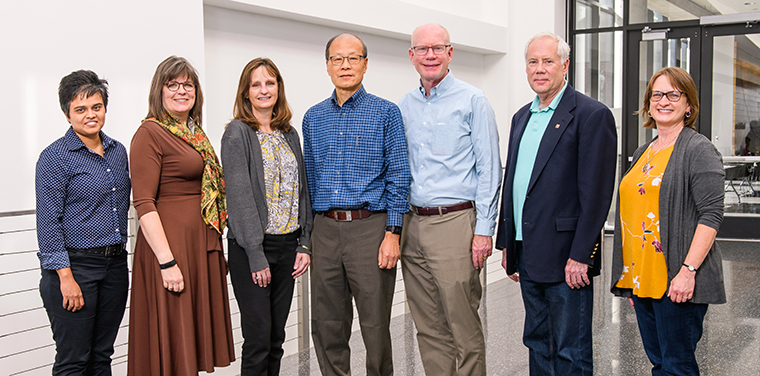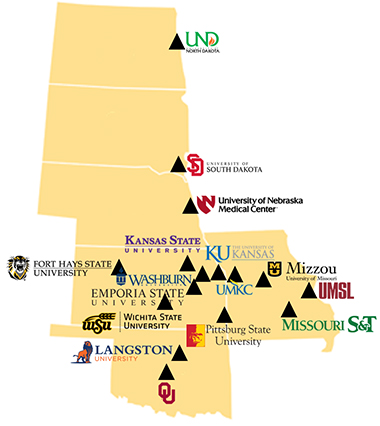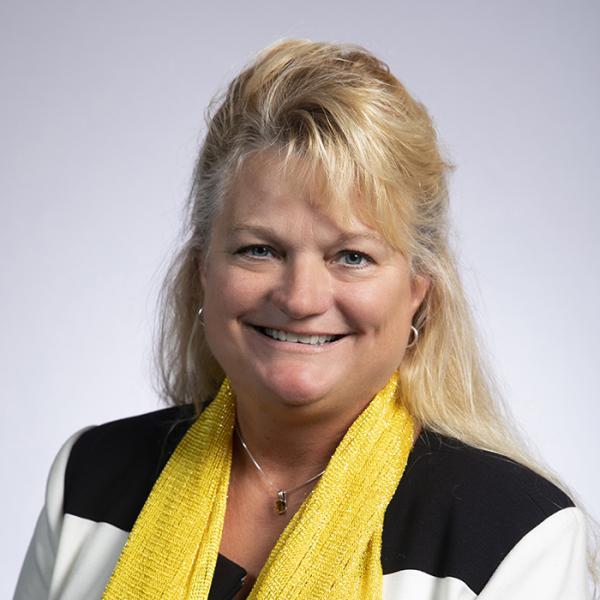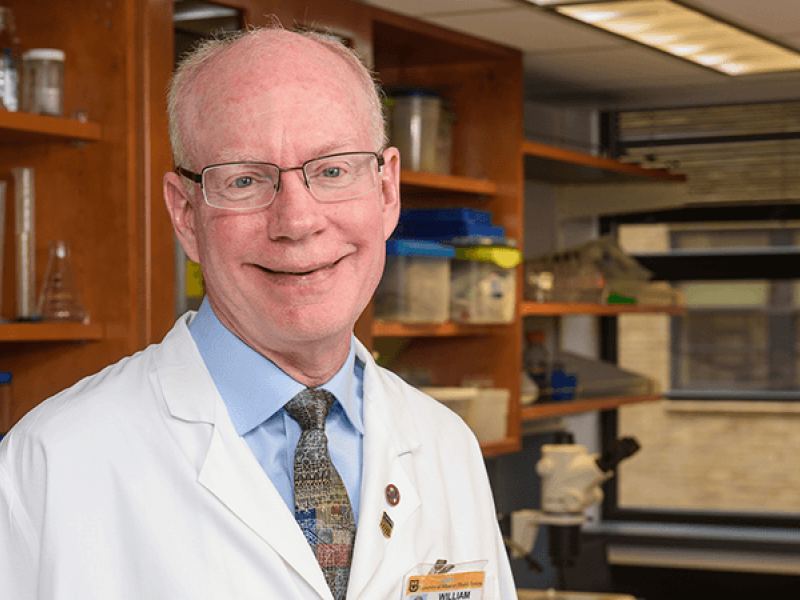The Midwest Biomedical Accelerator Consortium (MBArC) was established in 2019 as a 4-year, $3.9 million partnership between the University of Missouri, Columbia (lead)/ University of Kansas Medical Center (KUMC), Kansas City and the National Institutes of Health Research Evaluation and Commercialization Hubs (NIH REACH).

The goal of MBArC is to provide funding, training, and education to academic researchers to accelerate the transition of discoveries originating from research labs into products that improve health. To be eligible for this funding opportunity, a technology must be an idea or invention based on a participating institution’s intellectual property and should not be licensed/optioned to a company. Promising proof-of-concept work emerging out of the Hub will be ready for the next source of independent financing through viable start-up companies competitive for small business grants, private capital investment, or licensing opportunities.
To this collaboration, MU brings outstanding biomedical and bioengineering research programs and its vibrant track record of participation in the Coulter Biomedical Accelerator Program. KUMC provides its exceptional biomedical research programs and Frontiers, its NIH Clinical and Translational Science Award (CTSA). In addition, each institution has existing partnerships that strengthen and extend the alliance — MU with the University of Missouri System universities in Kansas City (UMKC), St. Louis (UMSL), and Rolla (Missouri S&T), and KUMC with the Kansas Idea Network of Biomedical Research Excellence (K-INBRE) and the Sustainable Heartland Accelerator Regional Partnership Hub (SHARPhub). All sixteen participating institutions are eligible for MBArC funding.
 The MBArC network will employ the following strategies to increase biomedical research commercialization:
The MBArC network will employ the following strategies to increase biomedical research commercialization:
- Leverage MBArC’s geographic and institutional scope to develop strategic partnerships that invite scientists to engage in technology transfer and commercialization,
- Give academic researchers the training and resources needed to validate the clinical and commercial feasibility of their innovations,
- Provide researchers with funding and mentorship to complete product definition studies and attract follow-on funding, and
- Offer experiential learning opportunities in biomedical entrepreneurship
Applications should involve ideas that originate from within a participating institution (making them potentially eligible for patent protection or some other mechanism that will return income to the program) or university-derived technologies with pending/issued patents or copyright. Technologies that are already licensed/optioned to a company are not eligible.









